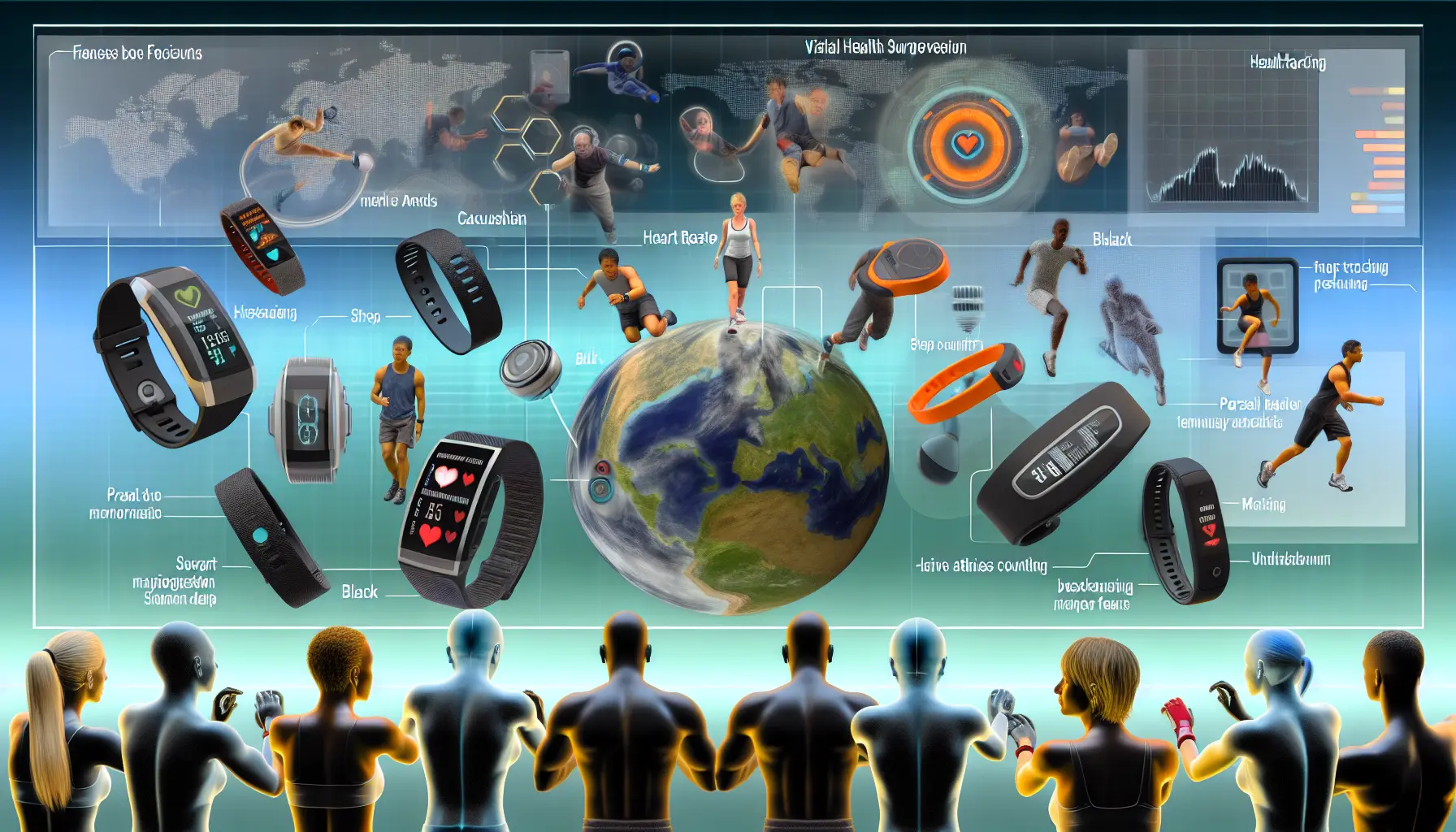
The Revolution of Wearable Tech in Fitness: A Complete Guide
Estimated reading time: 10 minutes
Key Takeaways
- Wearable Tech Transformation: Fitness wearables have evolved into sophisticated health companions, offering more than just step counting.
- Personal Health Insights: These devices provide valuable data on heart rate, sleep quality, and more, enhancing personal health monitoring.
- Diverse Device Options: From smartwatches to specialized athletic wearables, there's a device to suit every fitness need.
- Future Innovations: Emerging technologies promise even more advanced features in fitness wearables.
- Maximizing Potential: Setting realistic goals and integrating wearable data can optimize your fitness journey.
Table of Contents
- Understanding the Impact of Fitness Wearables
- The Evolution of Fitness Tracking Devices
- Types of Wearable Health Devices
- Key Health Tracking Features
- Benefits of Wearable Health Monitoring
- Choosing the Right Fitness Wearable
- The Future of Wearable Fitness Technology
- Maximizing Your Fitness Wearable's Potential
- Conclusion
- Frequently Asked Questions
Understanding the Impact of Fitness Wearables
Wearable tech in fitness has transformed how we monitor and improve our health. These smart devices do more than count steps—they're sophisticated health companions that track everything from heart rhythms to sleep quality. Recent studies show a significant increase in adoption, with over 60% of adults now using some form of fitness tracking technology.
Personal health monitoring has become more accessible and meaningful through these devices. Whether you're an athlete training for a marathon or someone taking their first steps toward better health, fitness wearables provide valuable insights into your body's patterns and performance.
The Evolution of Fitness Tracking Devices
Modern fitness wearables combine sophisticated sensors with user-friendly interfaces to deliver comprehensive health insights. These devices collect data about movement, physiology, and environmental factors, creating a detailed picture of your health status.
Core Components of Fitness Wearables
- Optical heart rate sensors
- Accelerometers for movement detection
- GPS tracking capabilities
- Blood oxygen monitoring
- Temperature sensors
These components work together to provide accurate health metrics that were once only available in medical settings. For more information, visit the National Center for Biotechnology Information.
Types of Wearable Health Devices
Smart Watches and Fitness Bands
These popular devices offer comprehensive tracking features:
- Continuous heart rate monitoring
- Activity tracking across multiple sports
- Sleep analysis with detailed sleep stage information
- Stress level monitoring
Specialized Athletic Wearables
For serious athletes and fitness enthusiasts:
- Smart clothing with embedded sensors
- Advanced running pods for gait analysis
- Heart rate chest straps for precise cardio data
Learn more about wearable technology in sports at Catapult Sports.
Key Health Tracking Features
Modern fitness wearables excel at continuous monitoring and data analysis. They track:
- Daily activity patterns
- Exercise intensity and duration
- Recovery metrics
- Sleep quality indicators
- Stress levels through heart rate variability
This information syncs with smartphone apps and cloud platforms, creating comprehensive health profiles that help users make informed decisions about their wellness routines. For insights on selecting the best smartphone to complement your wearable device, check out our Ultimate Smartphone Buying Guide.
For market insights, visit Future Market Insights.
Benefits of Wearable Health Monitoring
Personal Health Management
Users gain unprecedented insight into their health patterns:
- Real-time feedback during workouts
- Long-term trend analysis
- Early warning signs of potential health issues
- Motivation through achievement tracking
Professional Athletic Applications
Athletes and coaches use these devices to:
- Optimize training programs
- Prevent overtraining
- Track performance improvements
- Monitor recovery needs
Refer to the American College of Sports Medicine's Top Fitness Trends for more information.
Choosing the Right Fitness Wearable
Consider these factors when selecting a device:
Essential Features
- Battery life and charging convenience
- Water resistance for swimming and showering
- Screen visibility in various lighting conditions
- Compatibility with your smartphone
Advanced Considerations
- Data accuracy requirements
- Specific sport tracking needs
- Budget constraints
- Style preferences
The Future of Wearable Fitness Technology
Innovation continues to drive improvements in wearable technology:
Emerging Technologies
- Non-invasive blood glucose monitoring
- Advanced sleep analysis
- Emotional state tracking
- Integration with virtual fitness platforms
These developments promise to make health tracking more comprehensive and accessible than ever before. To understand how artificial intelligence is shaping these advancements, explore our Artificial Intelligence Explained guide.
For future market insights, consult Future Market Insights.
Maximizing Your Fitness Wearable's Potential
To get the most from your device:
- Set realistic, measurable goals
- Use the data to adjust your training program
- Share relevant information with healthcare providers
- Regularly update your device's software
- Join online communities for support and motivation
Remember that while these devices provide valuable insights, they're tools to support, not replace, professional medical advice. For additional tips on enhancing your tech setup, visit our Comprehensive Web Tutorials page.
Conclusion
Wearable tech in fitness represents a significant advancement in personal health monitoring. These devices provide valuable insights that help users make informed decisions about their health and fitness. As technology continues to advance, we can expect even more sophisticated features and applications that will further enhance our ability to monitor and improve our well-being.
Whether you're starting your fitness journey or looking to optimize your athletic performance, today's wearable technology offers the tools you need to succeed. The key is choosing the right device for your needs and using its features consistently to achieve your health and fitness goals.
Frequently Asked Questions
What are the most important features to look for in a fitness wearable?
Key features include accurate heart rate monitoring, activity tracking, battery life, water resistance, and compatibility with your smartphone.
How can fitness wearables help improve my health?
Fitness wearables provide real-time data on your physical activities, sleep patterns, and overall health metrics, allowing you to make informed decisions about your health and adjust your lifestyle accordingly.
Are wearable devices accurate in tracking health metrics?
While most modern wearables offer a high degree of accuracy, they are not medical devices. They are best used for tracking trends and general health indicators rather than precise medical measurements.
What is the future of wearable fitness technology?
The future includes advances like non-invasive glucose monitoring, enhanced sleep tracking, emotional state detection, and deeper integration with virtual fitness and health platforms.
How do I choose the right wearable device for my needs?
Consider your fitness goals, the features most important to you, compatibility with other devices you own, your budget, and style preferences.









